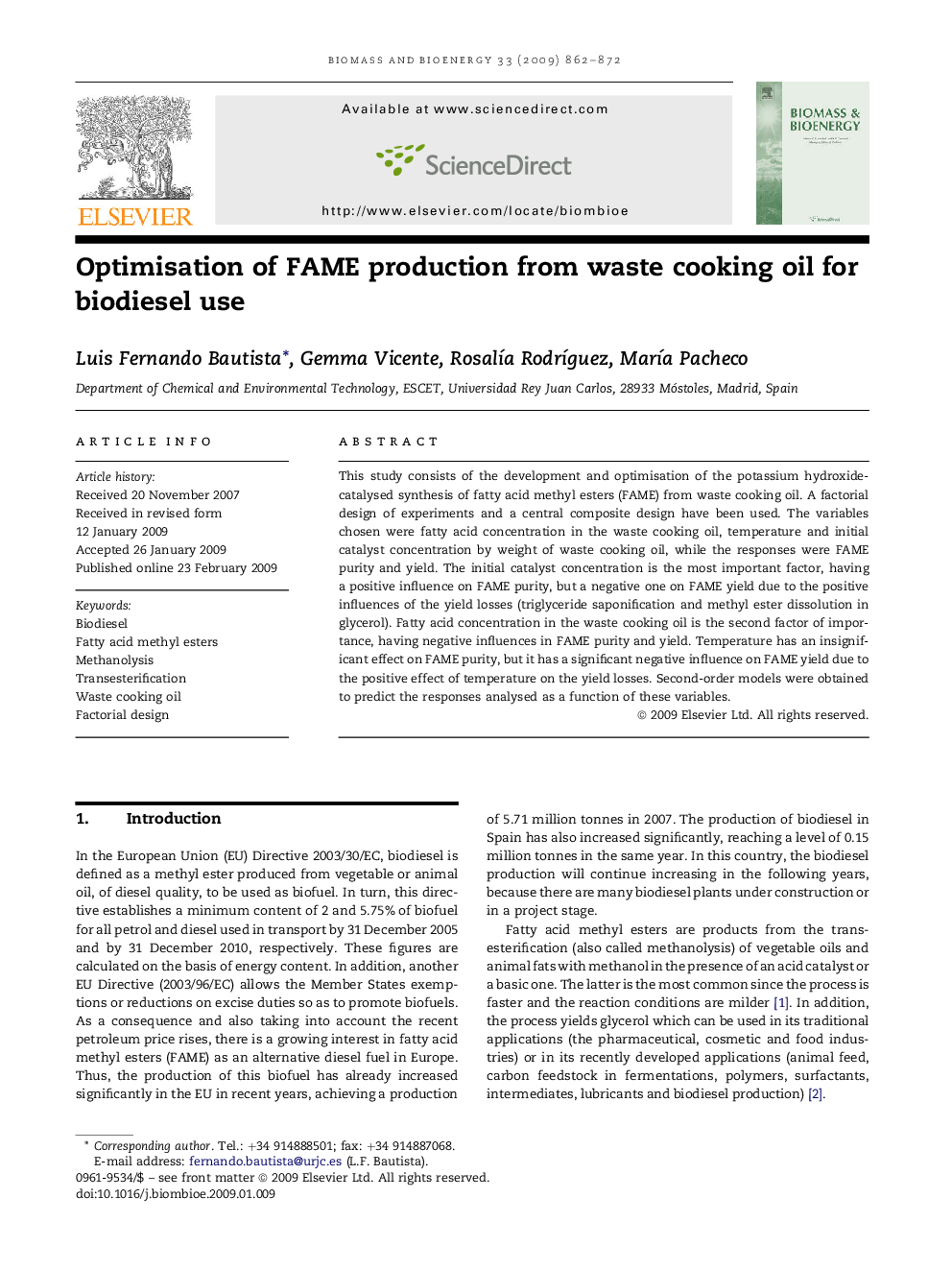| Article ID | Journal | Published Year | Pages | File Type |
|---|---|---|---|---|
| 678710 | Biomass and Bioenergy | 2009 | 11 Pages |
This study consists of the development and optimisation of the potassium hydroxide-catalysed synthesis of fatty acid methyl esters (FAME) from waste cooking oil. A factorial design of experiments and a central composite design have been used. The variables chosen were fatty acid concentration in the waste cooking oil, temperature and initial catalyst concentration by weight of waste cooking oil, while the responses were FAME purity and yield. The initial catalyst concentration is the most important factor, having a positive influence on FAME purity, but a negative one on FAME yield due to the positive influences of the yield losses (triglyceride saponification and methyl ester dissolution in glycerol). Fatty acid concentration in the waste cooking oil is the second factor of importance, having negative influences in FAME purity and yield. Temperature has an insignificant effect on FAME purity, but it has a significant negative influence on FAME yield due to the positive effect of temperature on the yield losses. Second-order models were obtained to predict the responses analysed as a function of these variables.
